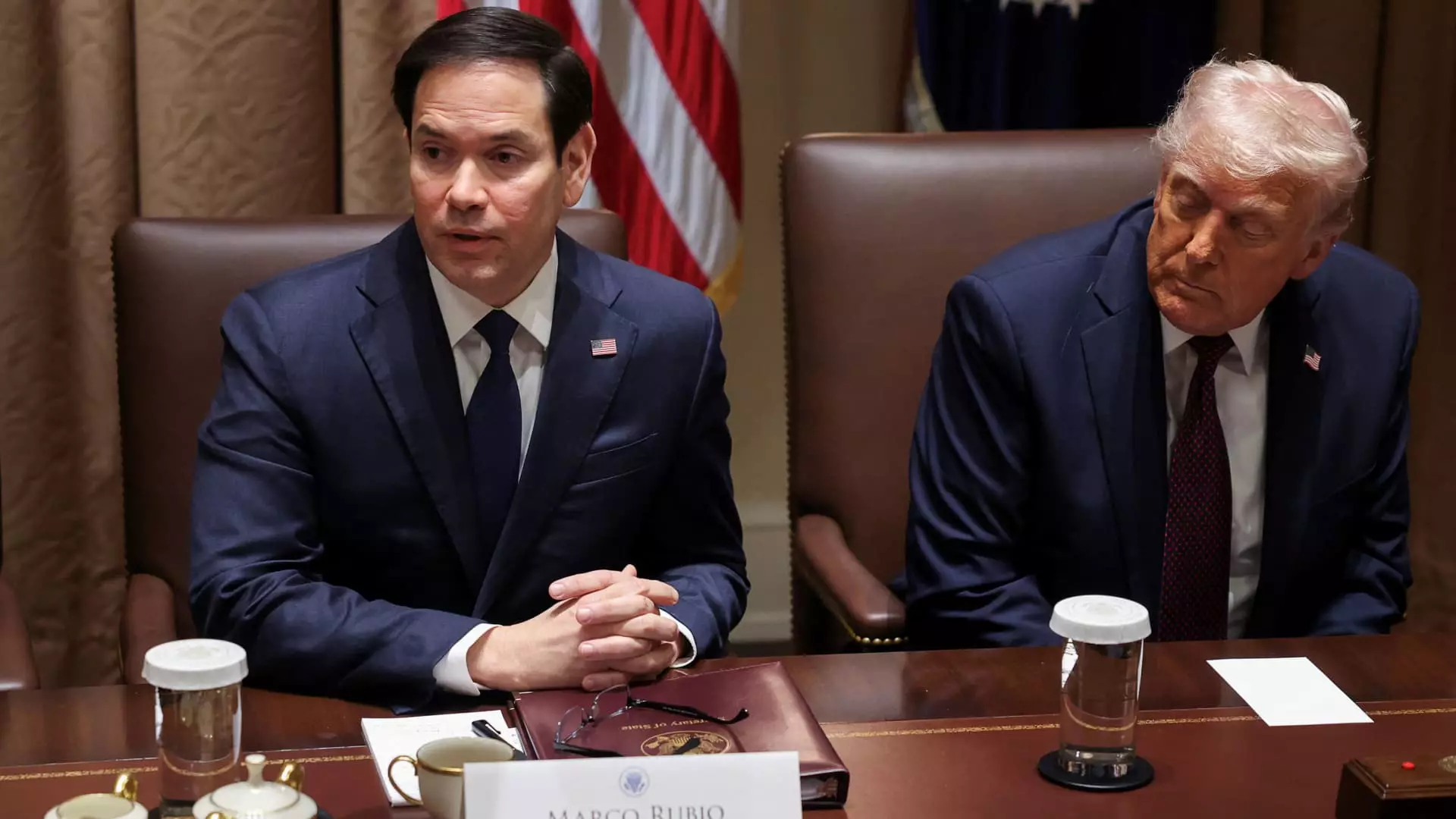The recent draft executive order from the Trump administration revealing a radical reshaping of the U.S. State Department should send shivers down the spines of those who care about American diplomacy and international relations. This plan, which aims to obliterate key offices and drastically curb our embassies abroad, signifies not only a retreat from global engagement but an outright abandonment of America’s role as a champion of democracy and human rights. The rationale behind these sweeping changes—framed as a “disciplined reorganization”—is nothing more than a façade for an ideology rooted in isolationism and a narrow, misguided interpretation of national interest.
A Dismantling of Human Rights Advocacy
The proposal prominently features the termination of offices dedicated to critical areas like climate change, women’s rights, and democracy advocacy. This begs the question: what kind of foreign policy is built by extinguishing the voices that advocate for the most vulnerable? By dismissing the importance of these issues, the Trump administration is effectively signaling that America’s diplomatic mission no longer values global welfare or morality. It’s a dangerous pivot towards a type of “might makes right” philosophy that undermines the foundational principles of the U.S. position on the world stage.
Moreover, shuttering embassies across Southern Africa and eliminating engagement with international bodies like the United Nations diminishes American influence. Reducing our footprint in regions battling dictatorial regimes and burgeoning humanitarian crises not only invites volatility but also enables adversaries like Russia and China to fill the void. The implications of such a decision are profound; the diplomatic friendships built over decades risk being severed, and the space for American leadership in global advocacy collapses.
The “America First” Doctrine: An Illusion of Strength
This executive order embraces a narrow vision of “America First” that marginalizes comprehensive, multifaceted approaches to foreign relations. Streamlining diplomatic missions under regional “corps” reflects a disheartening tendency to oversimplify complex geopolitical landscapes into manageable cubes that ignore contextual realities. In attempting to align with what the administration perceives as a straightforward strategy, the plan underestimates the importance of nuanced understanding in diplomatic relations.
In practice, this simplistic view could lead to diplomatic blunders that further alienate the U.S. from its allies and increase global tensions. The very fabric of diplomacy is diplomacy; it requires an understanding of cultural, historical, and individual national realities that this order blatantly disregards.
Examining the Hiring Practices: A Partisan Shift
The draft’s proposals concerning hiring practices are equally alarming. By abolishing the longstanding Foreign Service Officer Test in favor of evaluations based on alignment with the president’s foreign policy vision, the State Department risks becoming an echo chamber rather than a diverse space for debate. The principle of a meritocratic system is replaced with a political litmus test, fostering an environment where loyalty to the administration overshadows professional expertise.
This chilling shift not only undermines the integrity of the diplomatic corps but also threatens to eliminate the vast institutional knowledge accumulated over generations. Expecting diplomats to conform to a singular political vision stifles creativity, innovation, and ultimately the efficacy of U.S. diplomacy.
A Call for Alarm: The Stakes Are High
As we stand on the precipice of this radical dissolution of diplomatic structures, it’s time to raise the alarm about the risks associated with this administration’s pursuit of a narrowed narrative. If the proposed reorganization goes into effect, we could witness a cataclysmic decline in America’s ability to navigate the complexities of global interdependence. Such an approach endangers not only the fabric of our international relationships but poses severe risks to global stability.
The reshuffling of embassies, the slashing of critical programs, and the partisan politicization of hiring are not just minor administrative tweaks; they represent a seismic shift in American foreign policy that could have far-reaching consequences for decades to come. It begs immediate attention and a vigorous response, for the preservation of a stronger, more principled American presence in the world hinges on it.



Leave a Reply